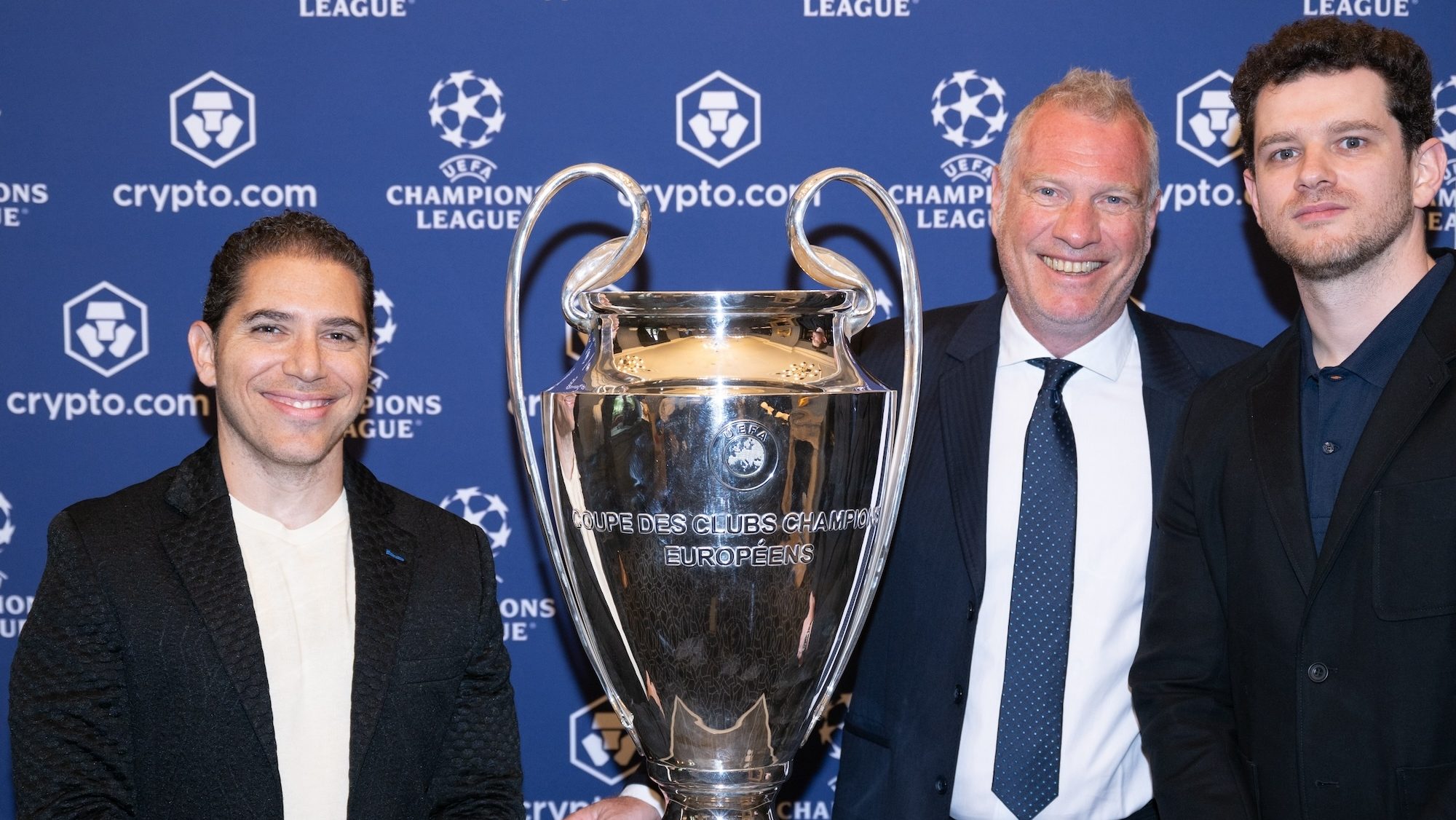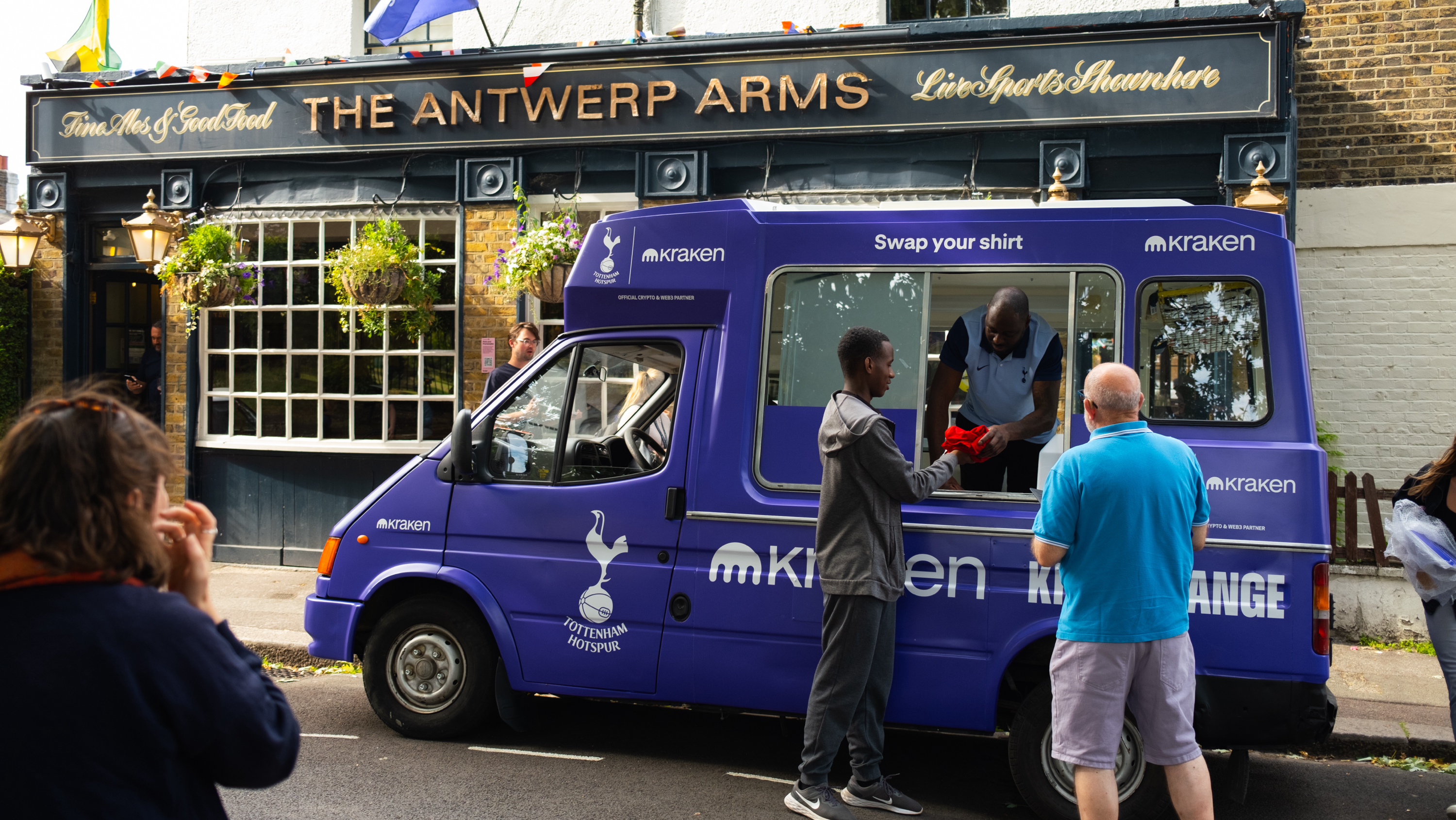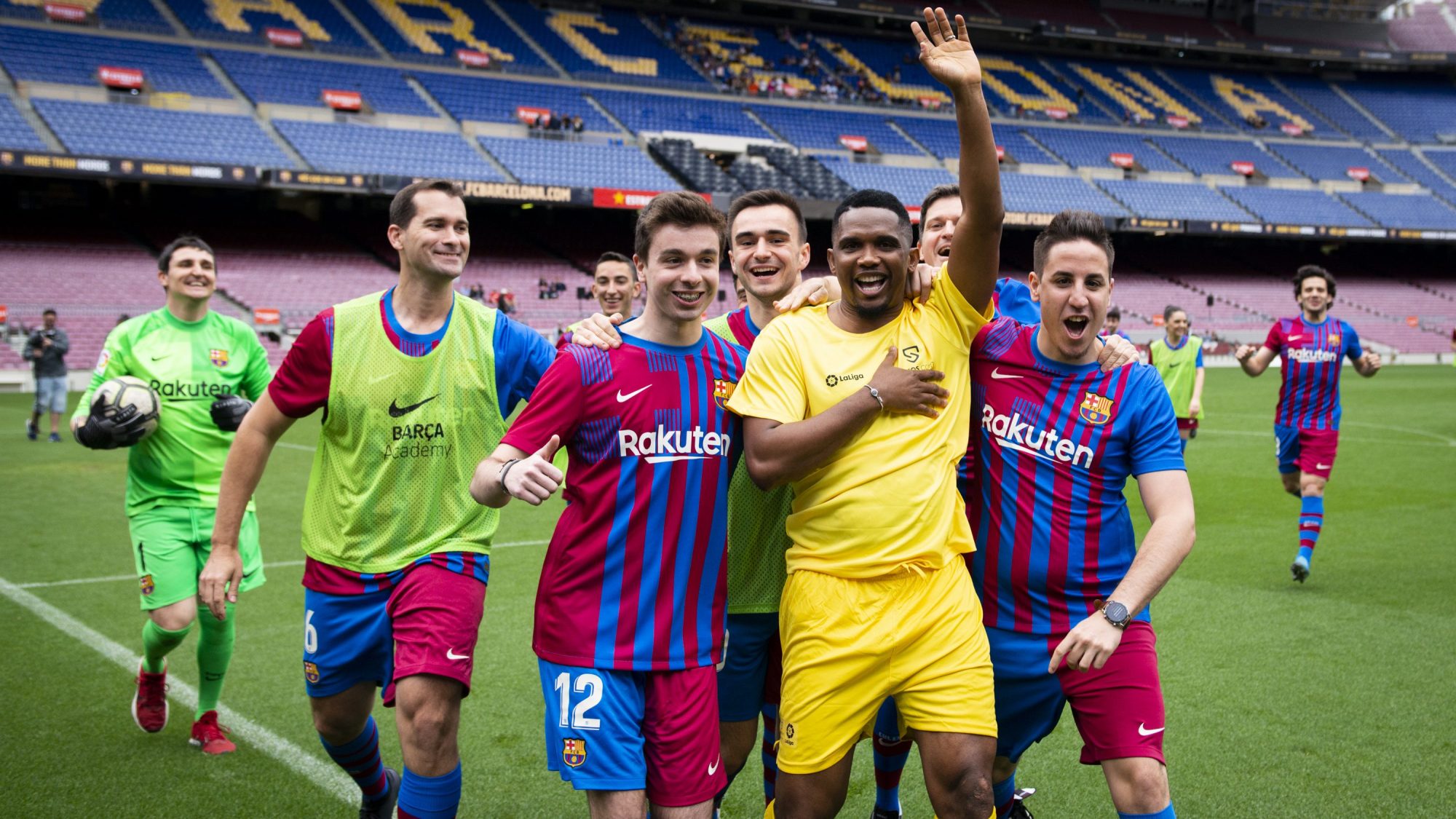Champions League Goes Crypto
On Tuesday, the UEFA Champions League returns in a new form. The expanded “Swiss-style” format scraps the long-standing home-and-away group stage for a 36-team league phase. Much of it will look familiar: The glitterati of European soccer will be there (defending champions Real Madrid, AC Milan, and Bayern Munich) alongside more recent upstarts (Bayer Leverkusen, Atalanta, and Feyenoord) and a smattering of relative minnows (Girona, Bologna, and Brest).

But there will be at least one unexpected debut. Across the continent, Crypto.com will be plastered across digital advertising boards and postmatch mix zones.
Throughout the tournament, more than 200 territories will see the broadcast of its logo, with coverage likely reaching an apex of nearly a half-billion people for the May final at the Allianz Arena in Munich. It will dwarf the viewership of the Super Bowl.
“This partnership is huge for us,” says Steven Kalifowitz, CMO at Crypto.com, the Singapore-based cryptocurrency exchange that has its name on the home of the Los Angeles. Lakers, Kings, and Sparks, and also sponsors Formula One, UFC, and the Philadelphia 76ers.
“The Champions League isn’t just one of the biggest [soccer] tournaments, but also leagues in terms of reach. And though the NFL has insane reach, too, there’s less space on the field for advertisers. [Soccer] offers a massive audience—UEFA cuts right across Europe, with huge influence across Asia and South America.”
Crypto.com CMO Steven Kalifowitz, UEFA Marketing Director Guy-Laurent Epstein, and Crypto.com EVP, Head of Global Business Development Gilad Rodkin. Courtesy: Crypto.com
The 2024–2027 sponsorship with European soccer’s governing body was announced in August, for an undisclosed amount. A previous deal, reportedly worth $495 million across five years, was scrapped in 2022 amid a brutal crypto bear market, heightened regulatory concerns from Europe, and the U.S. Securities and Exchange Commission tightening the screws on crypto companies. “There were signals from regulatory environments,” says Kalifowitz. “But the timing is right now—we’ve been chasing this deal for a while.”
It caps a remarkable turnaround in crypto’s fortunes. Following the 2022 crash—and the dramatic collapse of crypto exchange FTX, which had signed a 19-year stadium naming rights deal with the Miami Heat—the industry is now on a bull run, with the first Bitcoin ETFs listed on Wall Street and the cryptocurrency surging to its highest value since 2021. Trading activity has recovered: Crypto.com surpassed 100 million global users in May.
Now crypto cash is pouring back into sports, with soccer taking center stage.

The return of European domestic leagues in August highlighted a fresh wave of investment.
From perennial champions and contenders to also-rans and relegation candidates, the biggest leagues are awash with crypto. San Francisco–headquartered crypto exchange Kraken partnered with the Premier League’s Tottenham Hotspur and LaLiga’s Atlético de Madrid. In Serie A, Estonia-based exchange Zondacrypto has sponsored Atalanta, Parma, and Juventus in 2024. The logo of blockchain firm BlockDAG adorns the San Siro digital boards for Internazionale matches as well as Bundesliga side Borussia Dortmund’s Yellow Wall at the Westfalenstadion.
For crypto firms, soccer sponsorships promise unparalleled levels of exposure, targeted toward a dedicated, hyper-engaged audience. “The appeal is partnering with organizations that have an emotional attachment among a global fan base, in the world’s most participated sport,” says Dan Plumley, principal lecturer in sport finance at Sheffield Hallam University, U.K.
Premier League sponsorships still represent the pinnacle for brands, with global viewership in the billions and an ever-growing U.S. audience. This season has seen a record number of total crypto deals closed; 14 out of 20 clubs now have a form of Web3 partnership, whether that’s a trading platform offering cryptoassets, blockchain firm, or NFT company. They range from headline makers (crypto exchange OKX’s $70 million sponsorship of Manchester City), to the more opaque (Floki, Nottingham Forest’s crypto sponsor, also promotes its brand Valhalla, “a fresh spin to the classic creature-collection adventure game in a lively world,” according to the club’s official statement).
“Our primary driver is to become a household name in these markets,” says Kraken CMO Mayur Gupta. “In our research, we see a strong affinity between sports and crypto—especially in Europe, more than 75 percent of our core audience loves [soccer].”
Courtesy of Kraken
Kraken wants to bring Spurs fans into the fold. At the first home game, the crypto exchange hand-delivered 1,000 free Tottenham jerseys—featuring Kraken’s logo on the sleeve—to supporters via a purple-branded ice cream van. It may not scream DeFi (decentralized finance) or Web3—but that’s the point, Gupta says. “It’s about bridging the physical offline experience with the online digital one, and seamlessly embedding crypto as technology. We don’t have to talk about crypto to begin with, but we can create experiences that get fans excited, so they want to know more about it.”

Crypto partnerships offer more than cash injection for soccer clubs. “Our approach to partnerships involves pushing barriers and creating new ways for how fans can engage with the club,” says Ryan Norys, chief revenue officer at Tottenham Hotspur. “Over time, Kraken will be bringing their Web3 integrations to our global fan base to ensure that everyone has the opportunity to engage with the team, no matter where they live in the world.”
Soccer executives are also experimenting with new ways to secure younger fans, says Jack O’Holleran, CEO of blockchain company Skale Labs. Future generations may not necessarily want to watch a televised 90-minute match. “If your main revenue is broadcast deals, ad dollars will disappear if viewership figures go down. So, there’s a need to grow your global fan base—that could be collectibles and NFTs that offer special experiences, like a Zoom call with your favorite player.”
Some clubs already have NFTs (non-fungible tokens). The likes of Barcelona, Juventus, and Ligue 1’s Paris Saint-Germain—plus six Premier League sides—are partnered with Socios. Its fan tokens, purchased with Chiliz cryptocurrency, open access to in-app polls to vote on such matters as final kit designs, training pitch names, and in-stadium music. A select few Barcelona token holders have also been invited to play on the Camp Nou pitch. A spokesperson from Chiliz, the company behind the Socios.com platform, says more than half of its 2.2 million users are between 18 and 35 years old.
Courtesy of Socios
Soccer leagues are also signing up for digital collectibles. The Premier League has an official four-year license with Sorare, a virtual game featuring NFTs on the Ethereum blockchain—think rare baseball cards condemned to be viewed on a screen. In 2022, a unique Erling Haaland card sold for 265.1 ETH, the equivalent of $678,327. Sorare also counts Major League Soccer as a partner.
Whether the current wave of crypto-soccer investments will keep flowing depends on the industry’s longer-term performance; sponsorship deals are tied to market conditions. But Plumley says both sides want to strike agreements. “We often talk about ‘fit’ in sponsorship terms. Crypto wants the exposure, and the biggest clubs want the revenue and new ways of fan engagement. The fit works.”
One potential threat is tightening regulations, as legislation plays catchup to innovation. Plumley says some fans lost personal sums invested into soccer NFTs during crypto’s 2022 boom and bust—for example, the value of most Socios fan tokens today are a fraction of their 2021 peak. (The Chiliz spokesperson says the market price of tokens “doesn’t impact their utility.”) There are also concerns that gamified digital collectibles target the wallets of younger fans. “The whole industry is still in its infancy from a regulatory perspective,” adds Plumley. “Many people are still unsure of what crypto is and what it does.”
Deals like Crypto.com’s sponsorship of the Champions League may help grow familiarity—at least with the name. But will it actually lead soccer fans to sign up for Crypto.com? “Today, our brand awareness is north of 70 to 80 percent,” says Kalifowitz. “Sports is a piece of that—the Crypto.com Arena is mentioned in the media every day, even during the offseason. You see us every week, we show up in your feed. NBA, we’re there. MMA, we’re there. F1, we’re there. Now, Champions League, we’re there.”









































